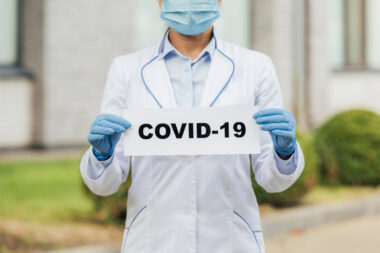Depression. I’m sure you’ve heard about it, even seen a few shows that touch on it, or maybe you know someone who was recently diagnosed. If you’re wondering what depression really is and how it affects a person, go ahead and read on.
Synopsis
A medical disorder that negatively affects an individual’s ability to function is called Major Depression Disorder a.k.a Depression.
An assortment of bodily and judgemental issues that impact what you do, life perception, and beliefs are affected by it. Having a hopeless outlook on life and regular tasks of the day become difficult.
One big misconception about Depression is that it isn’t just a small bout of sadness or something that will heal on its own. This condition could take months or possibly, years to get better.
I don’t say that to demoralize someone’s effort to get better or help a loved one. I just want anyone affected by depression not to be discouraged after only a little time seeking treatment. (Side note: I promise it does get better.)
Top 3 Classifications
Basis and symptoms are used by doctors to name which depression types a person has. There are no overt causes for any of these instances. Some cases grab hold of a person and then let go, and some cling to the individual much longer.
- Major Depression Disorder (MDD) or Clinical Disorder: Major Depression involves extended intense feelings of despair that last up to 14 days but usually goes on much longer.
- Persistent Depression Disorder (PDD): Persistent Depression or dysthymia, is less severe than Major Depression, but it tends to last for two years if not longer.
- Bipolar Depression: Bipolar Depression patients have high-energy or Manic periods and low energy periods that cycle back and forth. Heavy pessimism and despairing feelings overload the mindset in low energy periods.
Symptoms
There are a number of different symptoms of Depression Disorder. Fatigue and insomnia, difficulty in thinking, weight loss and weight gain without purpose are some examples. Relatively small issues in a person’s life become burdensome.
Unease, agitation, and delayed response are also common. Unwavering shame and guilt plague the mind of the individual. Low BMI, resistance to school attendance, anxiousness, soreness, and petulancy are some symptoms in younger children.
The decline of social life, lack to finish regular activities, disproportionate eating or sleeping, drug use, towering grief, acuteness, never feeling understood, incompletion of school/school activities, inconsequential feelings of self, and impatience are symptoms in young adults.
As we get older, our bodies and thinking do change, but experiencing Depression is not a normal part of aging! As hard as it is to get a teenager the right help for their disorder, it can be just as hard for an adult or older individual to get help.
Symptoms often go undiagnosed or unnoticed in adults. Adult symptoms of Depression include out-of-the-ordinary character behaviors, problematic memory issues, body pains, non-drug-related experiences low sex drive, lethargy issues, not feeling hungry, distress, heavy resistance to social activities/life in general, loneliness, and experience of suicidal thoughts.
It’s found that thoughts of suicide in older men are more common than the female gender.
Also read: Cognitive Health Issues in Elderly: Challenges and Solutions
Causes
There are diverse and very specific to the individual causes of Depression. Your personality type can even determine if you’re prone to depression. For instance, if someone has trouble making decisions or is easily riled up they are more susceptible.
Some medications have side effects that include depression, or if a person participates in recreational drug use, this can also contribute to it. Post-diagnosis of a medical condition can lead to depression because a person may feel it’s unfair that they are not or may never get better.
Trials and tribulations of life can spearhead Depression. Unfortunately, just as studies have found that heart disease and cancer are genetic the same goes for Depression Disorder. If a person’s parents or grandparents had depression disorder the chances for them to experience it goes up.
Chemical imbalances found in the brain can also cause depression. Hormonal changes can cause depression, changes from menopause, thyroid, or pregnancies.
Diagnosis
People experience sadness throughout their life. It is normal. However, it is suggested that if you are experiencing unhappy periods that exceed 14 days you should consult a professional.
Please note that every professional has their own opinion so it’s good to get another opinion if you feel “off” about their analysis. A healthcare provider may consult the DSM-5, which is the Diagnostic and Statistical Manual of Mental Disorders by the American Psychiatric Association to diagnose you.
You may be asked to fill out a questionnaire that asks about your symptoms, family history, thoughts, feelings, and behavioral patterns to determine a psychiatric evaluation.
A complete blood count or thyroid test may be used to evaluate a patient, these are called lab tests. A health problem may be the cause of Depression so a doctor may ask you a few questions about your health.
Also read: Common Sleep Problems: Habits, Symptoms, and Treatments
Treatment
Depression can seem unbearable and make you believe nothing will help but there is effective treatment available. Medication may be prescribed to an individual diagnosed with Depression Disorder. Seeing a psychiatrist or psychologist can also help with the condition.
Personal jargon or Self-help is a great way to combat depression. Self-help includes increasing get-togethers with loved ones, the correct amount of sleep, and a balanced amount of exercise. Speaking to a psychotherapist or receiving counseling can help pinpoint problem areas in your psyche to help with your disorder.
Some people need longer treatment than others but developing coping skills is key to improving all-around mental health. Massage, hypnosis, or acupuncture can be used as Complementary Therapy. This means, on top of other treatments, a person can include these options to help with personal welfare, which is called Alternative Treatment.
Depression can be treated with medication such as antidepressants to help even out brain chemistry. Antidepressants can take at least two weeks to work and can have side effects, but these side effects usually subside after a while.
Antidepressants are just one example of medication a person could be prescribed, there are a number of different options to consider. Side effects can be dangerous so a person should consult with a professional about how they are feeling once prescribed.
People with severe depression or depression psychosis could consider Brain Stimulation Therapy, such as Vagus Nerve Stimulation (VNS), Transcranial Magnetic Stimulation (TMS), and Electroconvulsive Therapy (ECT).
Conclusion
Depression Disorder is a serious condition that weighs heavy on a person, even more so if a person doesn’t understand what’s happening to them. Being able-bodied is not the only indication of health. How you feel on the inside is just as, if not more, important than your physical fitness. Seeing a professional and seeking the right treatment is crucial for a person to be healthy.
This is a guest article by Alexis Mosby. Alexis has been writing since she was 8 years old, reads a book a week, and loves riding horses.
This article is published by our independent team of health and wellness pundits that publish original and informative content to empower readers to take charge of their health and embark on a physically, mentally, and emotionally balanced lifestyle.





































